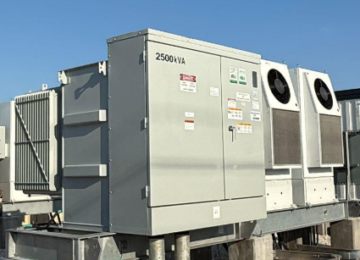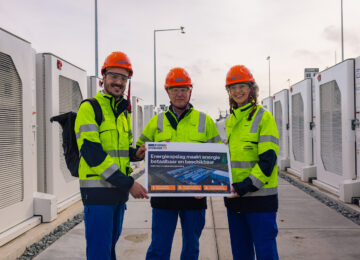Expert Team Energy System 2050: storage and conversion must be expanded as soon as possible!
The Energy System 2050 expert team, set up by Minister Jetten with the task of outlining what the Netherlands' climate-neutral energy system should look like in 2050, published its interim results this week. The expert team sees an important role for energy storage and conversion. The minister will use the final sketch to arrive at a National Energy System Plan 2050.
Storage and conversion
The expert team concludes in its intermediate results that some development paths toward the new energy system are more robust than others. But in every scenario, energy conservation and electricity supply expansion are robust. Electricity supply - including storage and conversion - should therefore be expanded as soon as possible.
All scenarios show that electricity will play a significantly greater role in industry, the built environment and mobility than it does today. The reinforcement of the electricity grid, which currently suffers from considerable congestion, is therefore extremely urgent. Strengthening connections with surrounding countries is also crucial. To avoid delaying the transition due to insufficient infrastructure availability, good location choices are needed for energy supply and demand. Also necessary are innovative methods of deploying local grids. This will minimize the burden on the national infrastructure. In all these matters, government steering is essential.
Importance of carbon-free flexibility
Renewably generated electricity has large peaks and troughs in production. Both demand and supply of renewable electricity are expected to increase rapidly. Therefore, scaling up CO2-free flexibility is badly needed. Fulfilling the need for CO2-free flexibility can be done in several ways: demand flexibility, batteries, thermal storage, hydrogen and CO2-free controllable generation.
Some solutions are technologically mature but still have limited application due to barriers in market regulation, market incentives or regulation. For technologies that are less mature, it is important for the government to contribute to "gaining experience. This can be done by focusing on research and demonstration projects, which must be quickly scalable.
The government must also commit to scaling up mature technologies that are essential to the transition but cannot yet be financially viable. For such technologies, the government can share in the financial risks. For parties who must invest in electricity infrastructure, hydrogen and CO2-free flexibility, there must be clarity about the rules of the game and realization moments. A 'railroad timetable' with commitment from all parties about the timely fulfillment of each party's task provides mutual trust. This confidence is also increased if the government provides clarity in the Energy Act about the market organization and regulation within these chains.





